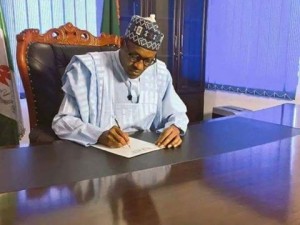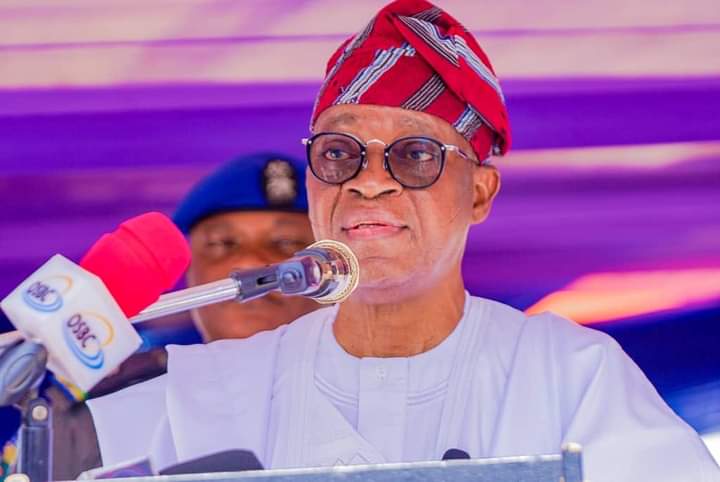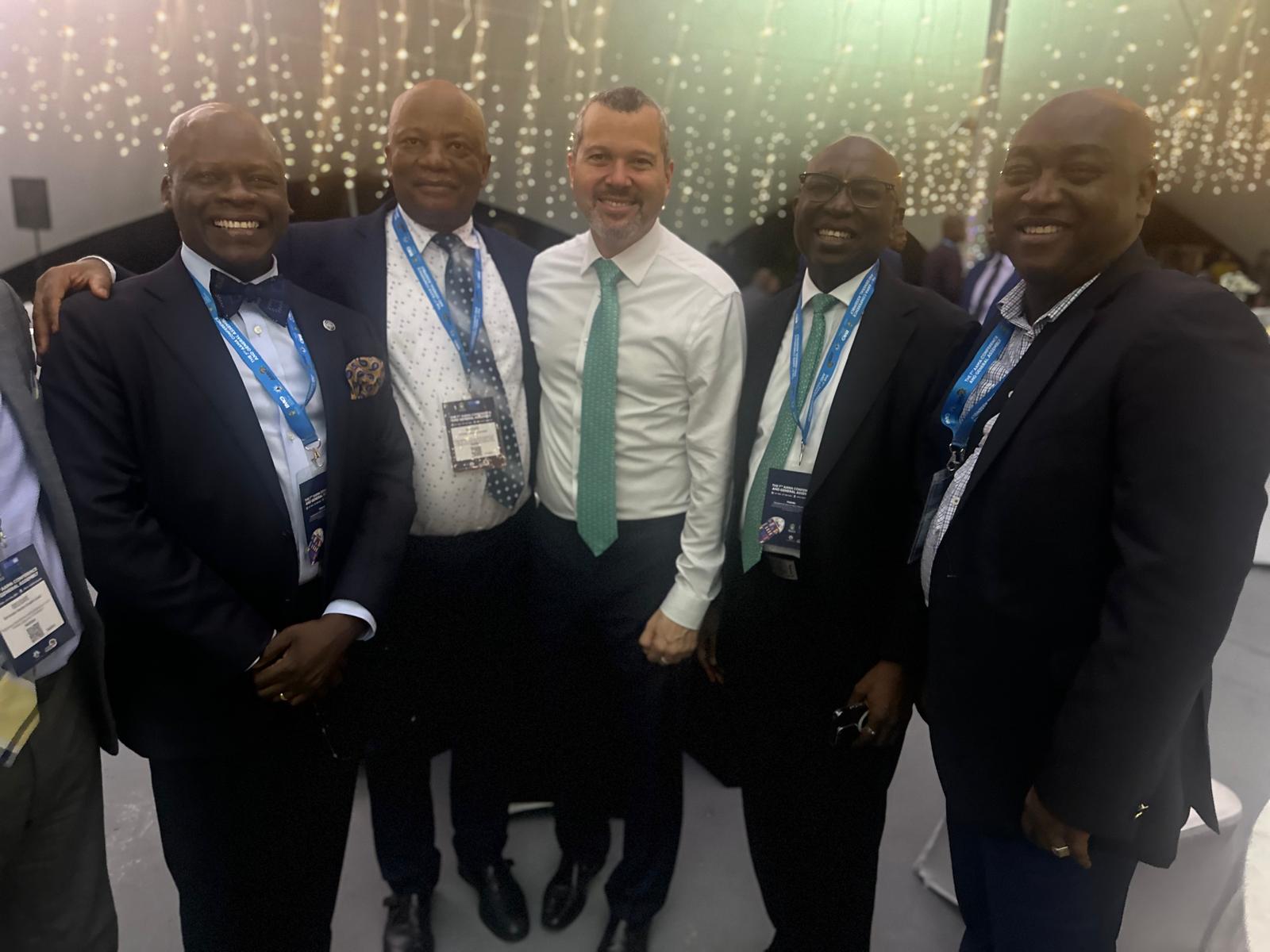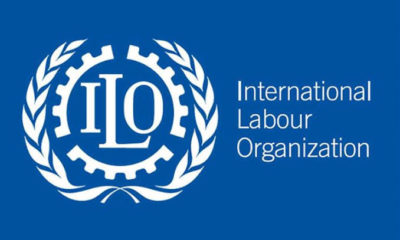Maritime
Nigeria’s President-elect Buhari excites maritime industry stakeholders
LAGOS-Maritime industry stakeholders are excited over the triumph of General Muhammadu Buhari in the March 28, 2015 presidential polls.
In the election result announced yesterday by the Independent National Electoral Commission (INEC), Buhari defeated incumbent President Goodluck Jonathan.
Jonathan had called the All Progressives Congress (APC) candidate yesterday to congratulate him. The president spoke with Buhari on the phone and was expected to address the nation after rounding off a meeting with his cabinet.
He also spoke with the National Leader of APC, Bola Tinubu.
The March 28 election is historic because it is the first time an opposition party will unseat the central government as Buhari’s emergence yesterday put an end to the 16-year rule of the Peoples Democratic Party (PDP).
National President, Association of Nigerian Licensed Customs Agents (ANLCA), Prince Olayiwola Shittu, who spoke exclusively with Ships & Ports daily yesterday, a few minutes after INEC Chairman, Professor Attahiru Jega declared Buhari winner of the heated election, expressed excitement with the outcome of the polls.
He described Buhari’s victory as “the result of patience and perseverance. “And it is not a surprise either that it’s a close run between two leaders with different orientation. Here is a sitting president who is thinking in the long term and here is an incoming president who is thinking on impacting on the people in the short term,” he said.
On his expectation of the new government to be formed by Buhari on May 29, Shittu said, “All the reports of all the committees that have been piling dust, whether seen or unseen but without any action taking place should be looked into. It is not a matter of setting up further committees but they should look at previous committees.”
Shittu also expressed hope that the Buhari administration would review the implementation of the controversial national automotive policy.
Founder of the National Association of Government Approved Freight Forwarders (NAGAFF), Dr. Boniface Aniebonam, said Buhari’s emergence as President-elect clearly showed the desire for a different approach to governance by Nigerians.
He said, “What is happening in Nigeria is not about Buhari but a march towards sustainable democracy in Nigeria.
“It is not about Buhari, it is not about Goodluck . It is about good governance in Nigeria, it is about Nigerians becoming critically aware of their environment, economy and their well being.
“From what we have seen now, we can see that Nigerians are consciously and deliberately becoming very very interested in what happens around them. The emphasis right now should be sustainable attack on the issues of corruption.
“What should we do to stem corruption in Nigeria as the cankerworm and what I will say to Nigeria is that it is not that Buhari is an angel but it is the perception that people have about him with an intent to really stamp out corruption in Nigeria.”
Chairman, Association of Registered Freight Forwarders (AREFF), Dr. Frank Ukor was however unhappy with the outcome of the election.
“We expected that the incumbent would have won the elections but unfortunately he lost to the opposition. PDP is protesting because there was mass rigging in the north otherwise I don’t see how an opposition will beat an incumbent,” he said.
He however called on the All Progressives Congress and the newly elected president, General Muhamadu Buhari to focus more attention on the maritime sector because of its importance to the economy.
“We expected the new President to pay attention to the maritime industry because that is the second highest revenue yielder. I hope the people there will not steal all the money,” he said.
On his part, Chairman, Igbo Maritime Forum, PTML chapter said the election, which produced the president, was credible.
He said, “I am satisfied with the conduct of the election. It is free and fair. I don’t have any reason to believe there is rigging. Politicians can say anything they want. As far as I understand, the international body said it was free and fair. We have the tendency in this country that if something is not going well, people will start saying otherwise but as far as I am concerned, the election was free and fair.”
Ships and Ports-
Maritime
Maritime Stakeholders Back Bill For Nigeria Coast Guard At Public Hearing

Stakeholders and experts in Nigeria’s maritime sector have expressed support for the Coast Guard Bill before the National Assembly, with many describing the proposed legislation as a boost to the federal government’s efforts in securing the maritime space.
At a public hearing convened by the Senate Committee on Marine Transport to discuss the bill for the establishment of the Nigeria Coast Guard (NCG), stakeholders presented varying views, with the majority supporting the creation of the NCG.
The majority of presentations voiced strong support for the establishment of the Coast Guard, with notable endorsements from prominent figures including Dr. Olisa Agbakoba, SAN; Dr. Ade Dosunmu, MON, former Director General of NIMASA; Mrs. Jean Anishere, SAN, representing the Nigeria Bar Association; and Rear Admiral Ekwerre U. Ekwerre (Rtd), former Flag Officer Commanding the Training Command of the Nigerian Navy.
ALSO READ: Like America, Like Ghana: Opposition Defeats Ruling Party In Presidential Election
Dr. Olisa Agbakoba described the bill as timely but emphasized the need for professional input to address certain concerns within the draft. He expressed his willingness to assist in this process. Dr. Ade Dosunmu offered full support for the bill, suggesting that the Nigerian Navy should focus on blue-water operations and national defense against external threats, while the Coast Guard should address maritime crimes and incidents along Nigeria’s extensive 855-kilometer coastline using more adaptable resources. He referenced successful maritime nations such as India, Singapore, China, the United States, Japan, Egypt, Morocco, and the United Arab Emirates, all of which have well-defined roles for both the Navy and Coast Guard.
However, Dr. Dosunmu cautioned against assigning functions such as hydrography and oceanographic research to the Coast Guard, as these responsibilities are already managed by other agencies, and incorporating them could divert focus from the Coast Guard’s primary mission.
Jean Anishere, SAN, articulated her support for the bill while highlighting certain ambiguities that must be resolved before it can be enacted. She pointed out specific provisions in the bill that require clarification and further refinement.
Retired Rear Admiral Ekwerre U. Ekwerre addressed concerns raised by the Nigerian Navy and advocated that the Navy should concentrate on defense, showcasing military strength, and conducting diplomatic operations within territorial waters and the Exclusive Economic Zone (EEZ). He asserted that the Coast Guard should be responsible for enforcing maritime laws in the nation’s inland waters.
In summary, while the majority of stakeholders endorsed the establishment of the Nigeria Coast Guard, they also called for careful consideration of the bill’s provisions to ensure clarity and effectiveness in its implementation.
Maritime
How Innovative Financing Would Aid Africa’s Maritime Sector – NIMASA DG

Innovative financing models have been identified as the vital catalyst for achieving sustainable development in the African Maritime industry.
The Director General of the Nigerian Maritime Administration and Safety Agency (NIMASA), Dr. Dayo Mobereola, made the declaration at the 7th Association of African Maritime Administrations (AAMA) conference in Dar es Salaam, Tanzania.
He assured attendees of Nigeria’s commitment to advancing a future where Africa’s maritime sector thrives sustainably.
In his words, “Nigeria is committed to collaborating on technology and innovation to enhance safety, security, decarbonization, and the marine environment for a sustainable future.”
According to him, the conference presents a pivotal opportunity to address our shared challenges, particularly those related to sustainable energy, regional security, and economic growth.
ALSO READ: Tinubu, Ramphosa Co-Chair Bi-National Commission’s 11th Session
“We are here to advocate for innovative financing models and international support that will facilitate sustainable growth. As Nigeria pursues infrastructure development and digital transformation within our maritime sector, we call on our regional and international partners to support these efforts through technical and financial backing.
“Our priorities at the AAMA conference include exploring collaborative avenues to enhance maritime safety and security. By reinforcing our adherence to frameworks like the Djibouti and Yaoundé Codes of Conduct, we aim to solidify Nigeria’s role in combating piracy and maritime crime across West Africa,” he stated.
The AAMA was established to lay a firm foundation for regular consultations, enabling African maritime administrations to build joint positions on issues of common concern in the maritime sector.
When Nigeria hosted the 3rd AAMA conference in 2017, a master plan was developed outlining the measures necessary to advance the maritime agenda as envisioned in the African Maritime Transport Charter. The Association has also created a platform to strengthen cooperation at the regional, continental, and international levels, harmonizing policies and goals essential for the growth of the African maritime sector.
Maritime
Oyetola Counts On Nat’l Marine and Blue Economy Policy To Chart New Course For Dev’t

The Honourable Minister of Marine and Blue Economy, Adegboyega Oyetola is of the view that a National Policy on Marine and Blue Economy is essential for the development of the Nigerian maritime sector.
Biztellers reports that Oyetola shared the view, on Tuesday, while declaring open a stakeholders’ validation session aimed at developing the National Policy on Marine and Blue Economy in Nigeria, in Lagos.
The former Osun State Governor emphasized that the National Policy will create a sustainable pathway for economic growth in fisheries, aquaculture, renewable energy, tourism, and seabed mining, while also ensuring environmental sustainability.
He further noted the need for a robust National Policy to address challenges in the sector, including environmental degradation and illegal activities such as Illegal, Unreported, and Unregulated (IUU) fishing.
ALSO READ: Obi Congratulates NNPC Ltd On Port Harcourt Refinery
In his words, “A robust National Policy will ensure that we address these issues through a comprehensive framework that aligns with international best practices while safeguarding our marine resources for future generations.
“It is worth noting that Nigeria has achieved notable progress in maritime governance, including the ratification and domestication of international protocols and conventions. These measures have strengthened our safety and security framework, resulting in a remarkable three-year period with zero incidents of piracy in our waters. Nonetheless, the recurring boat mishaps underscore the pressing need for immediate action.
“This policy seeks to implement comprehensive strategies to ensure the safety of all waterways. However, challenges such as the recent spate of boat mishaps demand urgent attention. Consequently, this policy aims to establish comprehensive measures that will enhance safety across our waterways.
“As we develop this policy, the Ministry remains committed to repositioning Nigeria as a dominant player in the marine and blue economy, both regionally and globally. We are also pursuing Nigeria’s candidacy for election to Category C of the International Maritime Organization (IMO), which underscores our determination to strengthen our voice in global maritime governance”.
In his welcome address, the Permanent Secretary of the Ministry, Olufemi Oloruntola, noted that the validation workshop is a key step in shaping the National Policy on Marine and Blue Economy — a framework designed to address Nigeria’s specific needs and aspirations while embracing sustainable development principles. “It provides an opportunity for stakeholders to review, refine, and enrich the draft policy through a participatory and inclusive approach,” he said.
The draft policy, which consists of nine parts, offers an elaborate overview of our country’s marine and blue economic endowments and their current state. It affirms our mandate, vision, and mission, setting the stage for the policy’s objectives and aspirations. It further dissects these aspirations into five broad parts of legal and institutional framework; maritime transport, trade and shipping; fisheries and aquaculture; marine abiotic resources; and marine innovation and technology. It also identifies a range of cross-cutting issues and concludes with an assessment of stakeholders to support the implementation structure. Overall, it is a comprehensive document.
Also present at the event were the Chief Executive Officers of all the agencies under the Ministry, including Dr. Dayo Mobereola, Director General, Nigerian Maritime Administration and Safety Agency; Abubakar Dantsoho, Managing Director, Nigerian Ports Authority; Barrister Akutah Pius, Executive Secretary, Nigerian Shippers Council; and Bola Oyebamiji, Managing Director, National Inland Waterways Authority.
Other attendees included Funmi Folorunsho, President, African Shipowners Association; Engr. Greg Ogbeifun, Managing Director, Starz Marine; and the President, National Association of Stevedoring Companies, among other stakeholders.

















